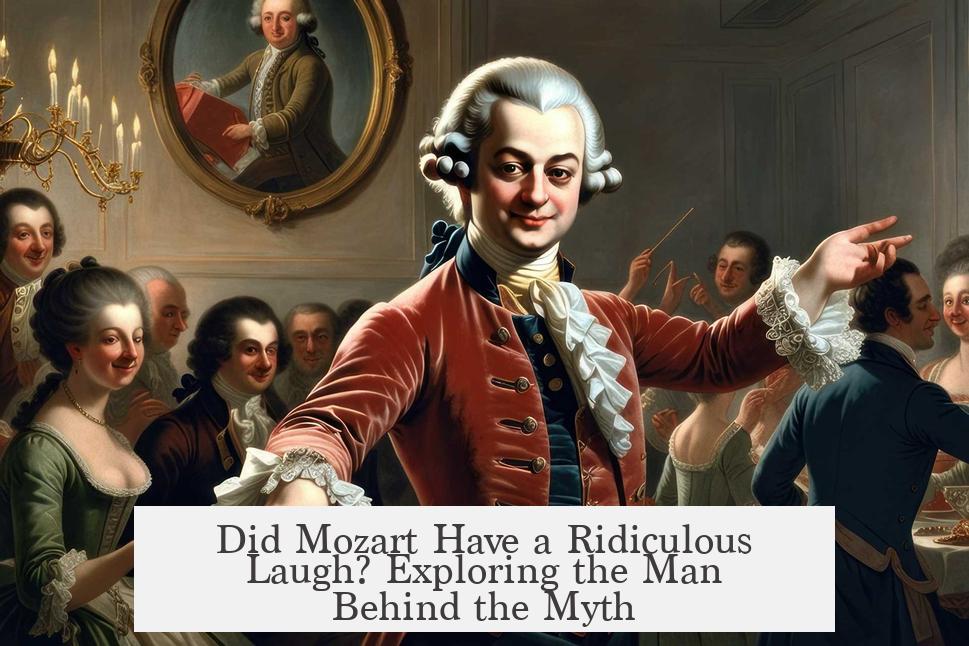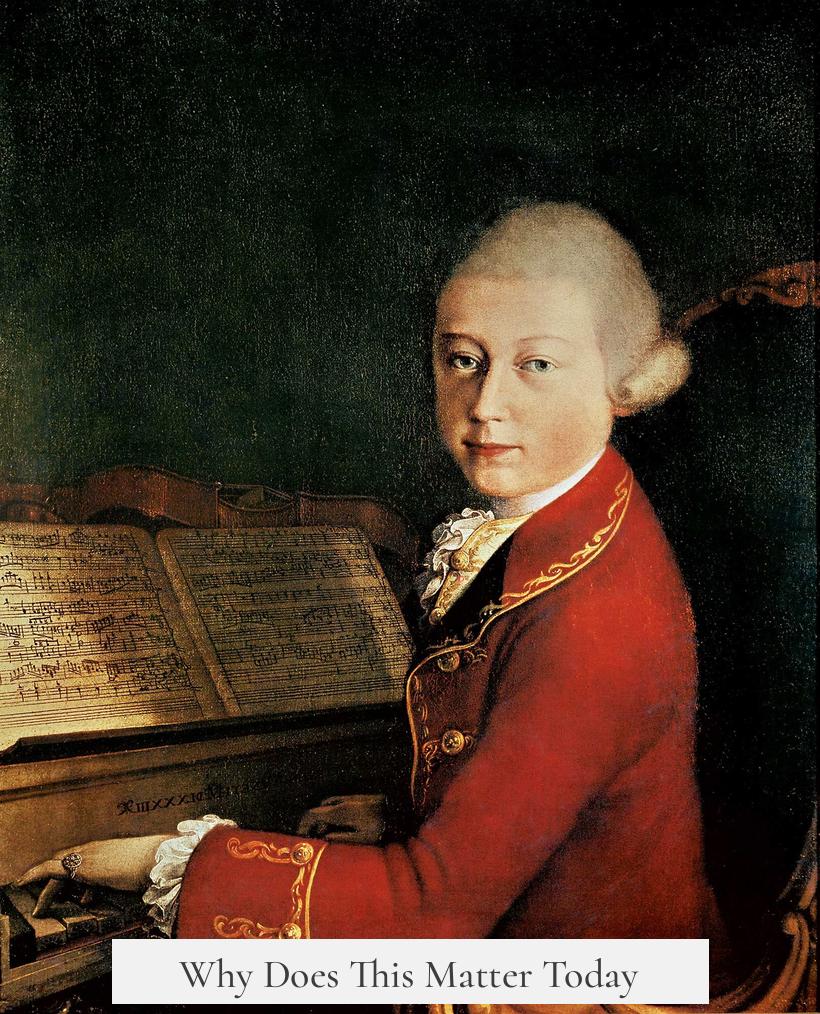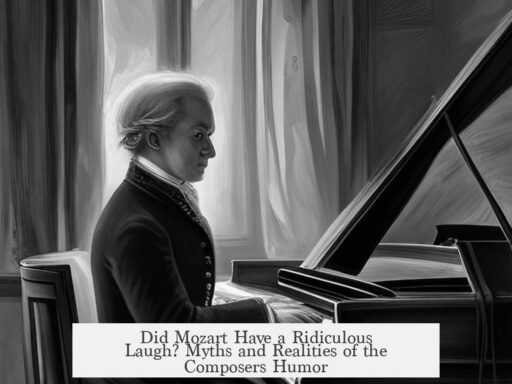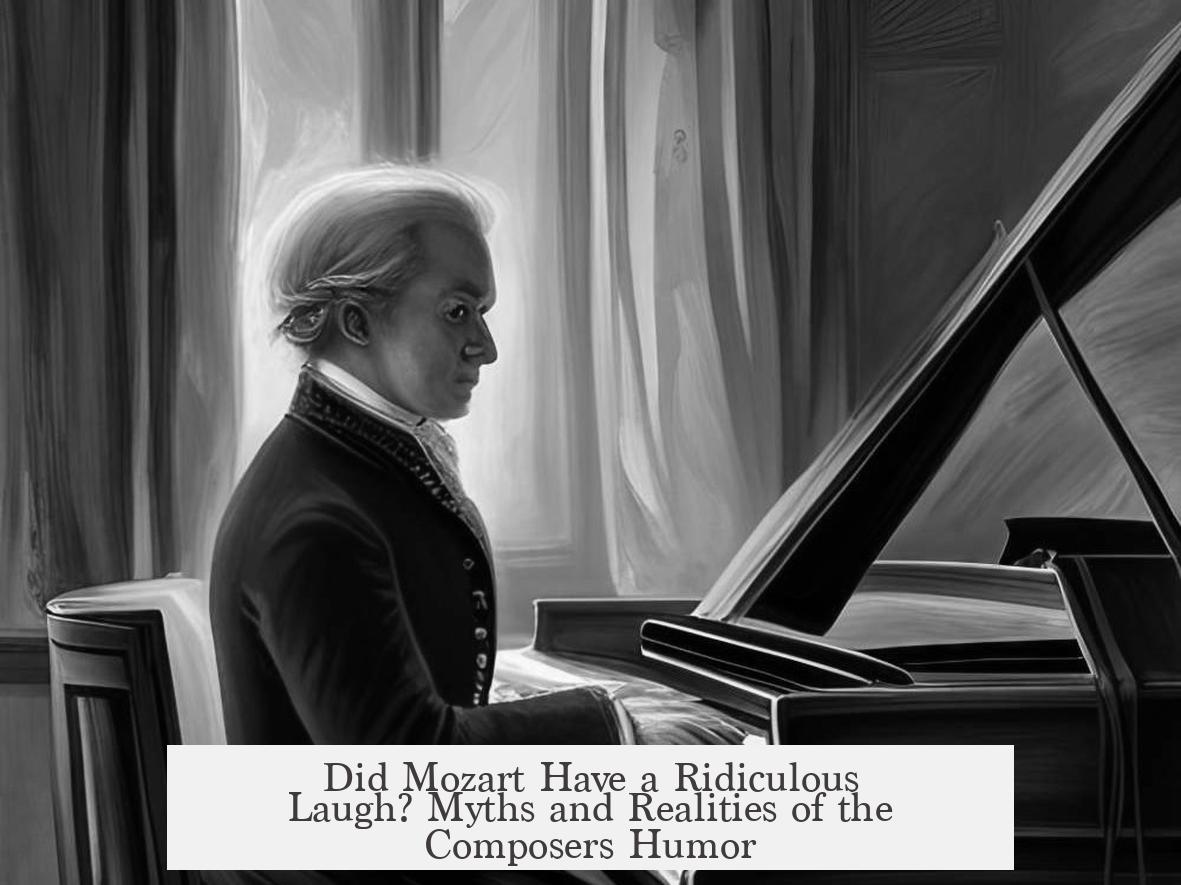Wolfgang Amadeus Mozart did have a laugh and sense of humor that many might find unusual or even ridiculous by modern standards. His humor often included playful, cheeky, and sometimes crude expressions. Historical records show Mozart enjoyed wordplay and jokes that might seem odd or inappropriate today. This side of Mozart reveals a musician who did not always adhere to formal social expectations, especially in private settings.
Mozart displayed a very particular and distinctive sense of humor. Some examples of his humor include nonsensical rhymes and playful insults, such as:
- “Bona nox, you are a real oxen.”
- “Shit in the bed that it bangs.”
- “Sleep pfei healthy, and stretch your ass to the mouth.”
These phrases illustrate Mozart’s tendency to mix composed language with crude, humorous twists. He also composed canons with seemingly Latin-sounding phrases that actually contained vulgar jokes. One famous example is a canon called “Difficile lectu,” which is an invitation to a rude act, demonstrating his playful irreverence.
Some portrayals, such as the character Antonio Salieri in the film Amadeus, present Mozart as childish and inappropriate. Salieri’s view is biased and colored by jealousy and misunderstanding. The film’s depiction should not be confused with historical reality. Mozart was a complex individual who balanced his musical genius with a lively, sometimes foolish demeanor.
His laugh and humor reflect a man who could be mischievous and irreverent. This contrasts with his serious musical achievements, showing a multifaceted personality rather than simply a “ridiculous laugh.”
- Mozart had a unique, often crude sense of humor.
- He used playful, irreverent language in private and musical writings.
- His laugh and behavior were part of a complex personality, not just foolishness.
- Film portrayals like Amadeus exaggerate some traits based on biased views.
- Real Mozart blended humor with extraordinary musical talent.
Did Mozart Have a Ridiculous Laugh? Exploring the Man Behind the Myth

Did Mozart have a ridiculous laugh? To cut straight to the chase, there’s no solid historical proof that Wolfgang Amadeus Mozart had a laugh that could be labeled as ridiculous. But, if you’ve ever watched the film Amadeus, you might recall an exaggerated, almost cartoonish cackle that sticks in your mind. That portrayal certainly left many wondering if his laugh was as bizarre as depicted — let’s unpack this.
First, set aside Hollywood dramatizations. The movie Amadeus is filtered through the biased lens of Antonio Salieri, an older composer who views Mozart as a young, brash imp. Salieri’s jealousy shines bright, and the film leans heavily on that perspective. We see Mozart as childish, raucous, and yes, given to loud, uninhibited bursts of laughter. But this is an interpretation, not a biography. The real Wolfgang Mozart was far more complex.
Mozart: A Man with a Particular Sense of Humor
If Mozart didn’t have a “ridiculous laugh” per se, did he at least enjoy humor? Absolutely. His surviving letters and musical compositions show he had a sharp, earthy, and sometimes downright cheeky sense of humor. Some of his jokey verses are downright shocking by today’s polite standards.
Ever heard the canon “Difficile lectu mihi mars”? It sounds like Latin but is actually a crude invitation to “lick me in the ass.” Mozart didn’t shy away from toilet humor or bawdy jokes. His playful lines like “Bona nox, you are a real oxen” or the hilarious “Sleep pfei healthy, and stretch your ass to the mouth” reveal his love for wordplay and irreverence.
This humorous bent suggests Mozart’s laugh, if anything, might have been hearty and unabashed. A laugh that mirrored the playful, sometimes raunchy humor he loved. But was it “ridiculous”? Maybe to staid classical music enthusiasts. Likely, it was just genuine, exuberant laughter of a man who didn’t take himself too seriously.
Social Savvy: Mozart’s Experience with the High Society
Here’s a detail that often surprises people: Mozart wasn’t a clueless wild child socially. His father toured him across Europe extensively. This forged a boy who could handle courtly life, meet aristocrats, and charm potential patrons. He knew how to behave and when to tone down his personality.
This means the “classless” or “inelegant” Mozart portrayed in movies like Amadeus is partly a dramatization. He was savvy enough to adjust his behavior for high society — though he sometimes flaunted conventions, probably because he trusted his talents and personality would get him noticed. So, if he laughed loudly, it was perhaps in private, among close friends, or when he felt comfortable — not in formal court settings.
Separating Myth from Reality
Mozart’s “ridiculous laugh” might be a myth born from the collision of a jealous rival’s distorted memories and Hollywood’s flair for drama. Salieri, older and resentful, remembers Mozart as a young upstart, an irrepressible troublemaker. Naturally, the moments that stand out are those where Mozart acts the fool or laughs inappropriately. It’s human nature to remember the irritating stuff more vividly, isn’t it?
Modern historians urge caution in believing every wild story about Mozart. Documents and letters describe him generally as charming and witty. His laugh? If anything, it was part of his vivid personality, a reflection of a vibrant man who could be silly, clever, and even a bit naughty.
Why Does This Matter Today?

Understanding whether Mozart had a ridiculous laugh is more than trivia. It helps us see beyond stereotypes. It reminds us that geniuses like Mozart were real people — with flaws, quirks, and bursts of laughter. It gives depth to the figure so often put on a pedestal.
Next time you hear a recording of Mozart’s music, imagine the man behind it: a cheeky jokester, a talented composer, a man who could charm courts but also laugh uproariously with close friends, possibly at jokes that would make modern audiences blush.
Takeaway Tips for Mozart Fans and Curious Minds
- Don’t trust Hollywood completely: Films like Amadeus dramatize history to entertain, not always to inform.
- Check the original sources: Mozart’s letters and musical canons give clues about his true character and humor.
- Celebrate Mozart’s humanity: His humor and personality make him relatable, not just an untouchable master.
- Enjoy the music with context: Knowing more about his life enriches the listening experience.
So, did Mozart have a ridiculous laugh? Probably not exactly as Hollywood shows. Was he a lively, humorous man with a bawdy streak? Yes. And that might be far more interesting.
“Mozart’s humor was often ribald and exuberant, reflecting a man who laughed heartily at life.”
Mozart’s laughter may not echo oddly through concert halls today, but in letters, jokes, and quirky canons, his spirit lives on — inviting us to smile, giggle, and maybe, just maybe, laugh a little ridiculously ourselves.




